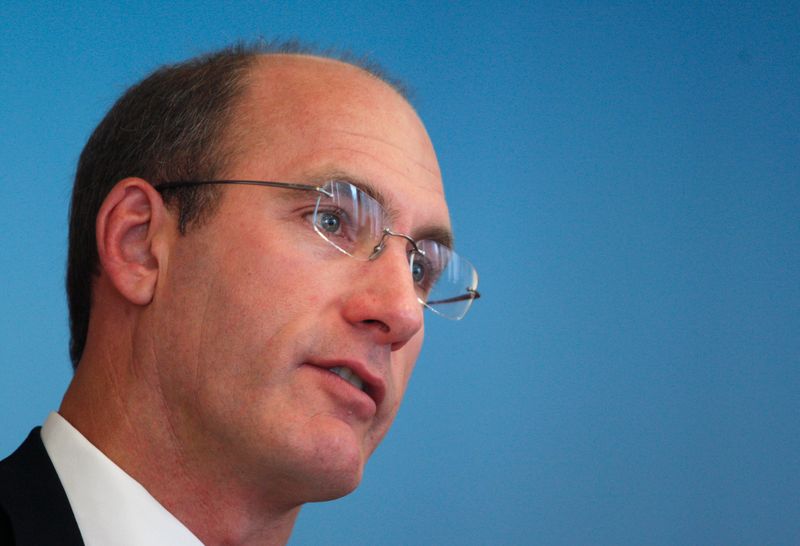By Sheila Dang, Helen Coster, Krystal Hu and Kenneth Li
(Reuters) - AT&T Inc is considering offering wireless phone plans partially subsidized by advertising as soon as a year from now, Chief Executive John Stankey said in an interview on Tuesday.
The consideration, which has not been previously disclosed, underscores AT&T’s commitment to the advertising business as the U.S. phone carrier reviews its portfolio to identify assets to sell in order to reduce its debt load. AT&T is considering selling its advertising-technology unit Xandr, sources familiar with the matter have told Reuters.
“I believe there's a segment of our customer base where given a choice, they would take some load of advertising for a $5 or $10 reduction in their mobile bill,” Stankey said.
Various companies including Amazon.com Inc (NASDAQ:AMZN), Virgin Mobile USA and Sprint's Boost Mobile have tested advertising supported phone services since the early 2000s but they have not caught on. AT&T is hoping that better advertising targeting could revive the idea.
The planned launch of an ad-supported version of AT&T’s video-streaming service HBO Max next year will serve as a “foundational element” that will provide new advertising inventory, and would be key to new phone plans supported by ads, Stankey said without offering details.
Stankey said ad-supported phone plans could be introduced in “a year or two.”
AT&T engineers are creating “unified customer identifiers,” Stankey said. Such technology would allow marketers to identify users across multiple devices and serve them relevant advertising.
The ability to fine tune ad targeting would allow AT&T to sell ads at higher rates, he said.
AT&T has invested in developing targeted advertising on its own media properties using data from its phone, TV and internet customers, but the company has been “slower in coming up the curve” on expanding its marketplace that allows advertisers to use AT&T data to target other media companies’ audiences, Stankey said.
In March, AT&T's Xandr struck a deal to partner with Walt Disney (NYSE:DIS) Co and AMC Networks (NASDAQ:AMCX) to let advertisers buy TV commercials across the networks
AT&T's advertising marketplace, which incorporates data from outside AT&T, could face privacy challenges as consumers express rising concern about tracking of their media use across platforms and laws such as the California Consumer Privacy Act have been passed.
“I don't know if we can count on it in perpetuity,” Stankey said, referring to the use of non-AT&T-owned data.
Stankey, who last week penned an op-ed for Politico stating that the U.S. government should provide subsidies to encourage companies to build fiber broadband networks in underserved areas, said in the Reuters interview that AT&T believes it could double its fiber footprint if it had the economic incentive.
Fiber or fiber optics are thin cables often installed underground that allow companies to deliver internet services to homes. AT&T uses fiber to deliver internet to homes and businesses as well as to power its 5G network.

AT&T’s fiber currently passes 18 million homes in the United States. The company could grow that number by 3 million to 5 million homes per year, he added.